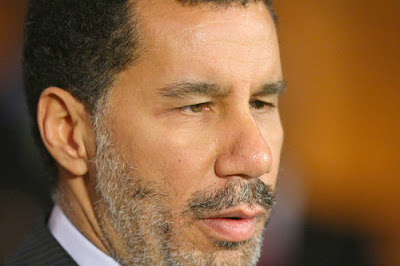
On August 29, 2005 Hurricane Katrina hit the city of New Orleans and began to carve its devastating path of destruction. Within the next two days, eighty percent of New Orleans was flooded; some areas were under as much as fifteen feet of water. Although the majority of the hurricane itself missed the city, the levees surrounding the city started to breach due to the immense amount of water coming toward the city from all the wind and flooding. According to a 2007 study conducted by the American Society of Civil Engineers, the breaches in the levees were the most prominent cause of the flooding that occurred in the city of New Orleans1.
With the devastation and the evacuation of roughly ninety percent of the residents of southeast Louisiana, the aftermath of Hurricane Katrina received the nation’s attention. Due to the severe weather and destruction, countless homes were damaged or destroyed. Many victims that did not escape the disaster in time were forced to seek refuge in their attics, or in some cases, on the roof of their flooded homes. Some were lucky enough to get into the Superdome, which was used as the main location for victims to take refuge if they hadn’t left the city in time.
Many of the local residents whose homes were destroyed by the hurricane lost everything. New Orleans’ Ninth Ward was drastically impacted by the aftermath of Hurricane Katrina. The repair efforts for the destroyed homes are still slow and unsteady. Many residents are still waiting for insurance money and/or government aid that has yet to come. Without this money, the residents can’t make the necessary repairs to return to living in their old homes. A surprising number of people are still forced to live in Federal Emergency Management Agency (FEMA) trailers or other areas and sometimes-harsh living environments.
One of the key factors that affected the severity of the damage was location. Depending on the location of the homes, some areas were wiped out, while others were only slightly damaged. North of Claiborne Avenue, which is part of the lower Ninth Ward, the current average number of residents that are fortunate enough to have a repaired home to come back to is about one person per block2. With such a lack of normalcy and without having a place to call home again, the money-tight people of New Orleans have few options.
Another major issue is the number of schools and businesses that were destroyed by the hurricane. Many businesses and jobs were lost, and children were left without a place to learn. The amount of time and money that it takes to rebuild and repair all of the damage that was done makes it very hard to move forward, and the residents are stuck in these unfortunate circumstances. Without the money coming in from the insurance companies and the government, the local people are being suppressed from any kind of economic or societal growth.
The cause of Hurricane Katrina is not the fault of the New Orleans residents, and they deserve the money that they are entitled to so that they can pick up where they left off and start their lives again. Another group that has been under much scrutiny regarding the true devastation of this tragedy is the U.S. Army Corps of Engineers, who established the very levees that burst, causing the flooding of New Orleans in the first place. Numerous coastal engineers and scientists that warned of the lack of protection the levees were providing before the events of Hurricane Katrina have spoken out against the repair jobs that the Army Corps did3. The argument is that the U.S. Army Corps of Engineers is using the same materials and systems that were used pre-Katrina.
Reports were conducted after Katrina to try and identify the exact issues the Army Corps may have been responsible for. It was concluded that many of the areas of the floodwalls were built on soggy soil and were ultimately left as flimsy barriers3. Between bad engineering and poorly conducted analyses, the floodwalls were sure to fail. Once the hurricane itself had died off, the media lost interest in the story, and ultimately the American people moved on to the next story; however, the destruction was still very real.
On September 12, 2005 Mike Brown the director of FEMA, resigned. He had come under much scrutiny by the critics in the media over the way he handled a lot of the situations regarding the Katrina aftermath. In a news release, Brown said, “As I told the president, it is important that I leave now to avoid further distraction from the ongoing mission of FEMA.4” Another big issue holding back the progress of New Orleans is the lack of trust between the people and organizations.
As Michael Grunwald of CNN states in his Katrina anniversary article, “The Threatening Storm,” “But in the long run, recovery plans won’t much if investors, insurers and homesick evacuees can’t trust the Corps to prevent the city from drowning again.” I think that if the U.S. Army Corps of Engineers did a poor job protecting the city, leading to be a big cause of the gravity of Katrina, and they haven’t taken any significant efforts to revise their practices, then another organization needs to step in and take over.
Independent research needs to be conducted to ensure that every possible safety measure is put into place to avoid ever having a disaster like this happen again. According to hurricane experts like Ivor van Heerden, of the University of Louisiana, Katrina was not the worst possible scenario, and natural disasters like this could happen again. We need to be prepared for another hurricane, and we need to have the confidence that the residents will be safe and structures will hold. Hurricane Katrina needs to be taken as a warning and as a learning experience so that the safety and well being of the people of New Orleans isn’t threatened like this again.













